Lee Jae-myung has secured a strong mandate from South Korean voters, but his presidency is off to a rocky start. Rather than a customary transition period, Lee is to take power upon the impeachment of former President Yoon Suk Yeol, who sought to institute martial law in December.
Having no time to ease into his new role, Lee must immediately address a set of burning issues — most notably how to deal with what is a highly charged issue concerning former U.S. President Donald Trump.
Anemic Economy and Trade Strains
Lee garnered nearly 50 percent of the vote, a resounding repudiation of the military-style governance that will be imposed under Yoon. He promised to strengthen democracy and foster unity following six turbulent months. Yet his more immediate job is to keep the country out of an economic and diplomatic disaster of Mr. Trump’s making.
South Koreans were taken aback in April when Trump slapped 25% tariffs on all Korean imports. Following those had come penalties aimed at other vital sectors, including steel and automobiles. Seoul had assumed, like many in Washington, that a decades-old military alliance and a free trade agreement with the U.S. would protect it from such actions.
Economists warn that the tariffs could do serious damage to the economy. Moon Chung-in a veteran adviser who serves the Democratic Party led by Lee warned that the measures may even harden into an “economic crisis.” The country’s economy was already in decline, but was also exacerbated by recent political turmoil. Indeed, in the first three months of the year, it contracted. Addressing the economy has emerged as the No. 1 issue for South Korean voters.
With no president at the helm the past few months, there has been no chance to involve the U.S. in a tangible conversation. But now Lee must act with urgency — trade negotiation can’t wait.
Security Risks and Changing U.S. Priorities
Adding to the urgency is South Korea’s reliance on the U.S. for military protection. The U.S. currently has about 28,500 troops stationed in South Korea and provides defense assurances that include nuclear deterrence, in order to counter threats coming from North Korea. But Trump has been clear he views trade and security as linked.
In an April social media post, Trump wrote that he “discussed payment for the big time military protection” ant the outset of the trade negotiations and called it “one stop shopping.” This mentality leaves South Korea very vulnerable.
In his first term Trump had already wondered aloud why U.S. forces needed to be stationed in Korea so long as Seoul did not pay more for them. It is assumed he will ask for even more this time. And while South Korea has both the wherewithal and the will to pay, Trump’s strategic objectives have shifted.
The U.S. is increasingly grappling with how to limit China’s military aspirations, particularly with respect to Taiwan.
A senior American defense official, Elbridge Colby, recently argued that South Korea should carry “overwhelming responsibility” for its defense against North Korea, so the United States military can ready itself for a potential conflict with China. That could involve redeploying U.S. troops to focus on China, or possibly evacuating some entirely, with South Korea’s military taking on some of the traditional deterrence missions against Beijing.
This would leave South Korea in a military and diplomatic bind. President Lee has long been wary of the U.S. alliance and seeks to improve relations with China, a crucial economic partner. And in a recent debate, he focused on the need to keep South Korea out of any China-Taiwan conflict, saying, “We have to steer clear of a China-Taiwan contingency. We can get along with both.”
Moon Chung-in has made similar comments, warning that South Korea is “scared the United States could leave us” while also dreading that it could be pulled into the U.S. strategy to “contain and encircle China.” And if the United States pushes too hard, “we can let them go,” he said.
The resulting recipe of Lee, Trump and China, former US diplomat Evans Revere cautioned me, may create the “perfect storm”, triggering the instability not just of peace and stability in and around the Korean Peninsula but of the entire Northeast Asian region.
The Rising Power and Patk of North Korea Diplomacy
And North Korea’s leader, Kim Jong Un, is watching closely, poised to exploit any divisions. His nuclear weapons program is more dangerous today than it was the last time Trump held office. Three meetings with Trump failed to produce a lasting agreement, and talks collapsed in 2019.
And Trump has also expressed his desire to try to kick-start talks with Kim again. But South Korean officials fear that any new arrangement could leave them vulnerable. There is also worry that Trump will agree to stop only the long-range missiles aimed at the U.S. and bypass short-range weapons that threaten South Korea. In exchange, Kim could demand major concessions.
Today, Kim has more nuclear warheads and more advanced weaponry. Sanctions aimed at coercing his regime have become increasingly impotent, largely because of its support from Russia. In exchange for helping in the Ukraine war, Vladimir Putin is now offering Kim military and economic assistance. This support provides North Korea with greater bargaining power in any negotiations with the United States.
Kim now had the leverage to demand recognition as a nuclear power and to press for troop reductions in South Korea. Sydney Seiler, who played a part in the 2019 negotiations, said the notion of tying a U.S. troop withdrawal to a deal “is really not that far-fetched.” He warned President Lee to promptly build a working relationship with Trump – and not to allow South Korea to be left in the conversation.
To start, Lee should prepare an “argumentative defense” for why South Korea is a valuable partner to the United States, Revere said. It could include financial and strategic arguments.
One such area of promise is shipbuilding. South Korea is the world’s second-leading shipbuilder after China and the site of the world’s largest naval shipyard in Ulsan. The builder, Hyundai Heavy Industries, produces 40 to 50 ships a year, including military ones. Seoul is seeking to contribute to the U.S. by constructing, renovating and maint.
“They are having difficulty with battleships, which are products of one of its three major industries largely supported by the government, and it is bound to undercut their national security,” said Jeong Woo Maan, who serves as the head of strategy for Hyundai’s naval division. This is one of the most powerful cards we have to play in a negotiation.”
Lee said he wouldn’t be in a rush to reach deals with Trump during his campaign. But as president, he may not have that option now.
Please tell me if you would like me to write it in the form of bullet points or if I have to write you a little summary.
PREV NEWS
NEXT NEWS
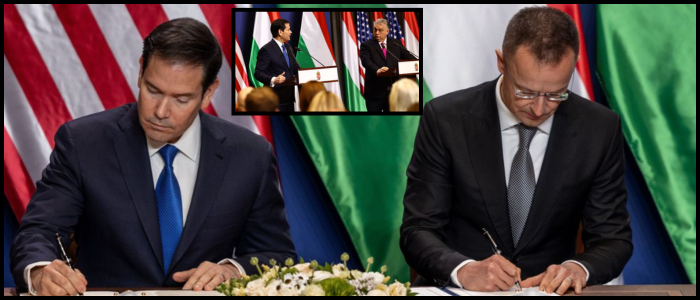

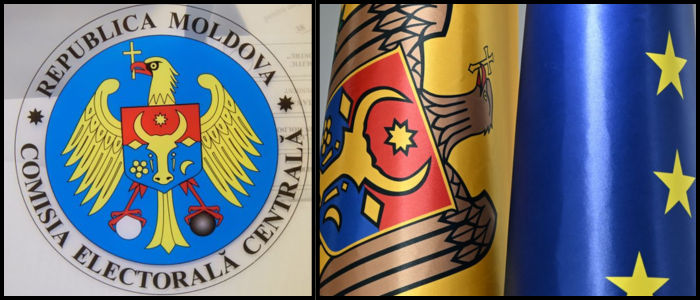


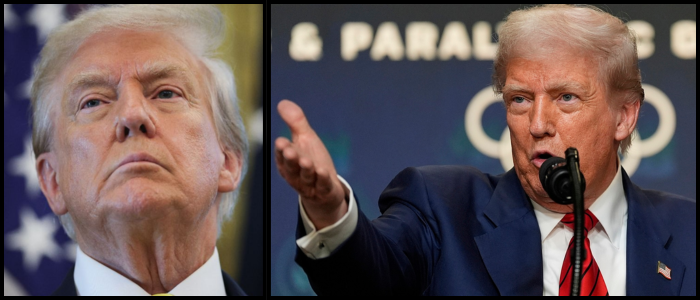
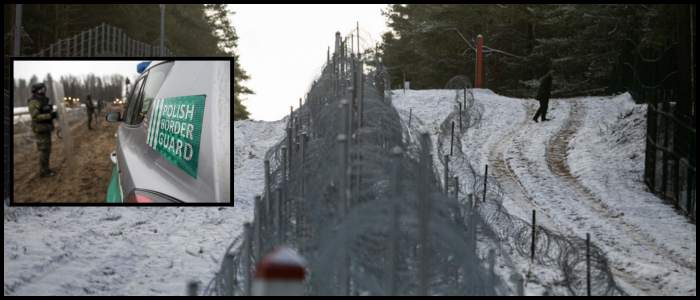
BY Nikodem Baran

BY Iwo Mazur

BY Iwo Mazur
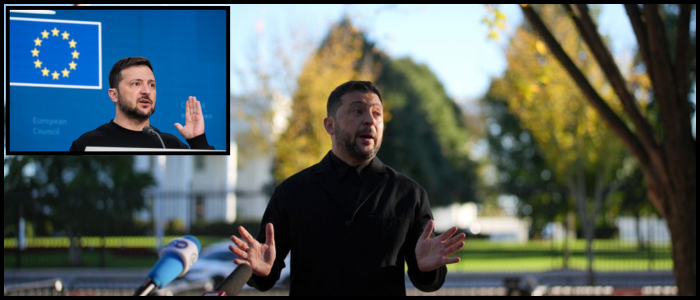
BY Oskar Malec

BY Oskar Malec
Uwielbiamy pliki cookie — zarówno te jadalne, jak i cyfrowe, które ulepszają Twoje wrażenia z przeglądania. Pomagają nam one udoskonalać funkcjonalność naszej witryny i Twoje ogólne wrażenia. Podstawowe i funkcjonalne pliki cookie są niezbędne do prawidłowego działania witryny i nie można ich wyłączyć. Ponadto używamy plików cookie w celu optymalizacji wydajności („komfort”) i wyświetlania spersonalizowanych reklam („marketing”), na co potrzebujemy Twojej zgody. Kliknij „Zezwól na wszystkie”, aby wyrazić zgodę na przetwarzanie danych. Uwielbiamy pliki cookie — zarówno te jadalne, jak i cyfrowe, które ulepszają Twoje wrażenia z przeglądania. Pomagają nam one udoskonalać funkcjonalność naszej witryny i Twoje ogólne wrażenia z przeglądania. Podstawowe i funkcjonalne pliki cookie są niezbędne do prawidłowego działania witryny i nie można ich wyłączyć. Ponadto używamy plików cookie w celu optymalizacji wydajności („komfort”) i wyświetlania spersonalizowanych reklam („marketing”), na co potrzebujemy Twojej zgody. Kliknij „Zezwól na wszystkie”, aby wyrazić zgodę na przetwarzanie danych.
Twoja zgoda obowiązuje również na mocy art. 49 (1) (a) RODO, co oznacza, że Twoje dane mogą być tymczasowo przetwarzane poza EOG, w tym w USA. W takich przypadkach wysokie europejskie standardy ochrony danych mogą nie być w pełni zagwarantowane, a władze USA mogą uzyskać dostęp do Twoich danych bez skutecznego środka prawnego. Możesz wycofać swoją zgodę w dowolnym momencie.
PrywatnośćWarunki korzystania z serwisu
Możesz zarządzać swoimi preferencjami dotyczącymi plików cookie lub wycofać zgodę w dowolnym momencie za pośrednictwem naszych ustawień plików cookie. Aby uzyskać więcej informacji, zapoznaj się z naszą Polityką prywatności.